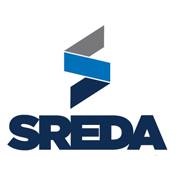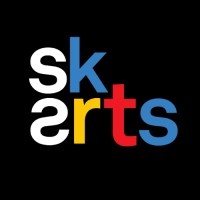
Saskatchewan Arts Board Grants
At a glance
- No Condition
- Open Date : November 11, 2024
- Closing date : December 1, 2024
- Information and cultural industries
- Educational services
- Arts, entertainment and recreation
- Saskatchewan
- Non-profit
- Public or Parapublic institution
- Sole proprietorship
- All revenue ranges
- All organization sizes
- Indigenous Peoples
- Canadians
- Culture and Arts
- Primary and Secondary Education
- Research
- Grant-making Foundations
- Diversity and Inclusion
- Children & youth
- Indigenous peoples
- Rural / Remote communities
- Artists / creatives
- Nonprofits / charities
- Academia / students
- All structures
- Provincial
Overview
Various grants for artists, critics and curators, editors, organizations, communities and more.
Activities funded
The Saskatchewan Arts Board Grants support a diverse range of initiatives aimed at enhancing the artistic landscape and cultural experience within the Saskatchewan community. Eligible projects include creative collaborations, artistic residencies, and programs fostering engagement and development within the arts community.
- Artists in Communities Projects: Engage the community through performances, workshops, or exhibitions led by professional artists.
- Artists in Communities Residencies: Host a six to twelve-month artist-in-residence project that significantly involves community engagement.
- Micro-Grant Initiatives: Support professional artists and organizations to fulfill emergent needs, practice development, and enhance artistic practices.
- Professional Arts Organizations Program: Contribute to the programs, governance, management, and operational functions of arts organizations.
- SaskFestivals: Support festival organizations to provide artistic programs and services that impact the Saskatchewan arts scene positively.
- Indigenous Community Arts Projects: Empower Indigenous communities to control and share their arts and culture, promoting resilience and healing.
Eligibility
The eligibility criteria for organizations applying for this grant include requirements related to the organizational structure, the nature of proposed activities, and alignment with program objectives.
- Applicants must be professional arts organizations or groups.
- Organizations must demonstrate capacity for governance, management, and operational efficacy.
- Proposals should support arts programs, services, and professional practices that align with the strategic priorities of SK Arts.
- Applicants are required to submit applications according to specified deadlines, dependent on the specific grant type.
Who is eligible?
1. Artists and Creators: Includes individual creators, artists, and arts professionals who can apply for specific grants designed to support their projects, development, and engagement with communities.2. Arts Organizations: Encompasses organizations involved in publishing, writing, visual arts, and other related fields that can apply for funding to support their operations, events, and professional development.3. Community Organizations: These are organizations that aim to collaborate with artists and promote community engagement in the arts, cultural revitalization, and intercultural dialogue.4. Indigenous Communities: Specific grants are available to support Indigenous communities in arts and cultural projects, focusing on empowerment, healing, and intergenerational knowledge transfer.5. Educational Institutions: Schools and educational bodies can apply for programs that facilitate the arts in educational settings, like the "Artists in Schools" program.6. Festival Organizers: Organizations involved in organizing festivals and artistic series that impact the arts scene in Saskatchewan.Eligible expenses
Eligible projects and activities for these grants focus on empowering artists, communities, and organizations to enhance cultural engagement and development within Saskatchewan. The grants support initiatives across various art forms, emphasizing community involvement and artistic growth.
- Engagement in the arts through performances, exhibitions, or workshops led by professional artists.
- Research and development of artistic residencies within communities.
- Six to twelve-month residency projects hosted by community organizations with significant community engagement.
- Support for professional artists and arts organizations to address emergent needs and create access for underserved applicants.
- Multi-year support for eligible arts organizations to enhance arts programs, governance, and operational functions.
- Financial support for festivals and series presenters to positively impact the arts in Saskatchewan.
- Promotion of Indigenous arts and cultural revitalization within Indigenous and non-Indigenous communities.
Eligible geographic areas
This grant is available for applicants located within the province of Saskatchewan. Eligible locations are aligned with supporting the arts and culture sector within this provincial region.
- Saskatchewan, Canada
How to apply
Understand the Grant Program
- Review the specific grant guidelines to ensure your project aligns with the grant’s objectives and criteria.
- Identify the appropriate category for your application, such as Events Grants, Marian Hebb Research Grants, Professional Development Grants.
Prepare Your Application
- Develop a comprehensive project proposal detailing the objectives, methodology, and expected outcomes.
- Gather all necessary documents, including any letters of support, resumes of key personnel, and detailed budget estimates.
Register and Apply Online
- Create an account on the grant provider’s online portal if not already registered.
- Log in and fill out the online application form, ensuring all sections are completed accurately.
- Upload all required documents in the specified formats.
Review and Submit Application
- Carefully review the entire application for completeness and adherence to guidelines.
- Ensure all attachments are correctly uploaded and clearly named.
- Submit the application online before the stated deadlines.
Confirmation of Submission
- Receive an email confirmation acknowledging receipt of your application.
- Note down the application reference number for future correspondence and tracking.
Additional information
There are no relevant additional information mentioned for this grant.
Frequently Asked Questions about the Saskatchewan Arts Board Grants Program
What is the Saskatchewan Arts Board Grants?
What is the deadline to apply?
Who is eligible for the Saskatchewan Arts Board Grants program?
What expenses are eligible under Saskatchewan Arts Board Grants?
Who can I contact for more information about the Saskatchewan Arts Board Grants?
Where is the Saskatchewan Arts Board Grants available?
Is the Saskatchewan Arts Board Grants a grant, loan, or tax credit?
More programs like this
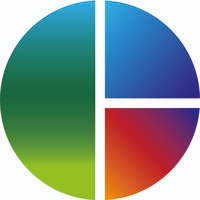
Creative Saskatchewan Investment Programs
Creative Saskatchewan
PrairiesCan — Economic Development Initiative
Prairies Economic Development Canada (PrairiesCan)
Event & Organization Sponsorship
Conexus Credit Union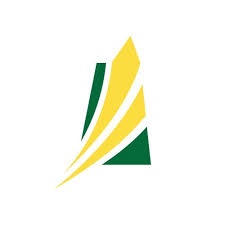
Saskatchewan Commercial Innovation Incentive (SCII)
Government of Saskatchewan
Regional Artificial Intelligence Initiative (RAII) in the Prairie Provinces
Prairies Economic Development Canada (PrairiesCan)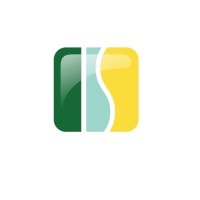
Made in Saskatchewan Technology Program (MIST)
Government of Saskatchewan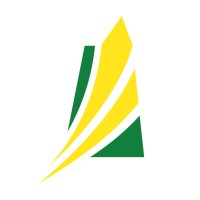
Charitable Gaming Grants
Saskatchewan Liquor and Gaming Authority
Saskatchewan Technology Startup Incentive (STSI)
Government of Saskatchewan
Canada-Saskatchewan Job Grant (CSJG)
Government of Saskatchewan